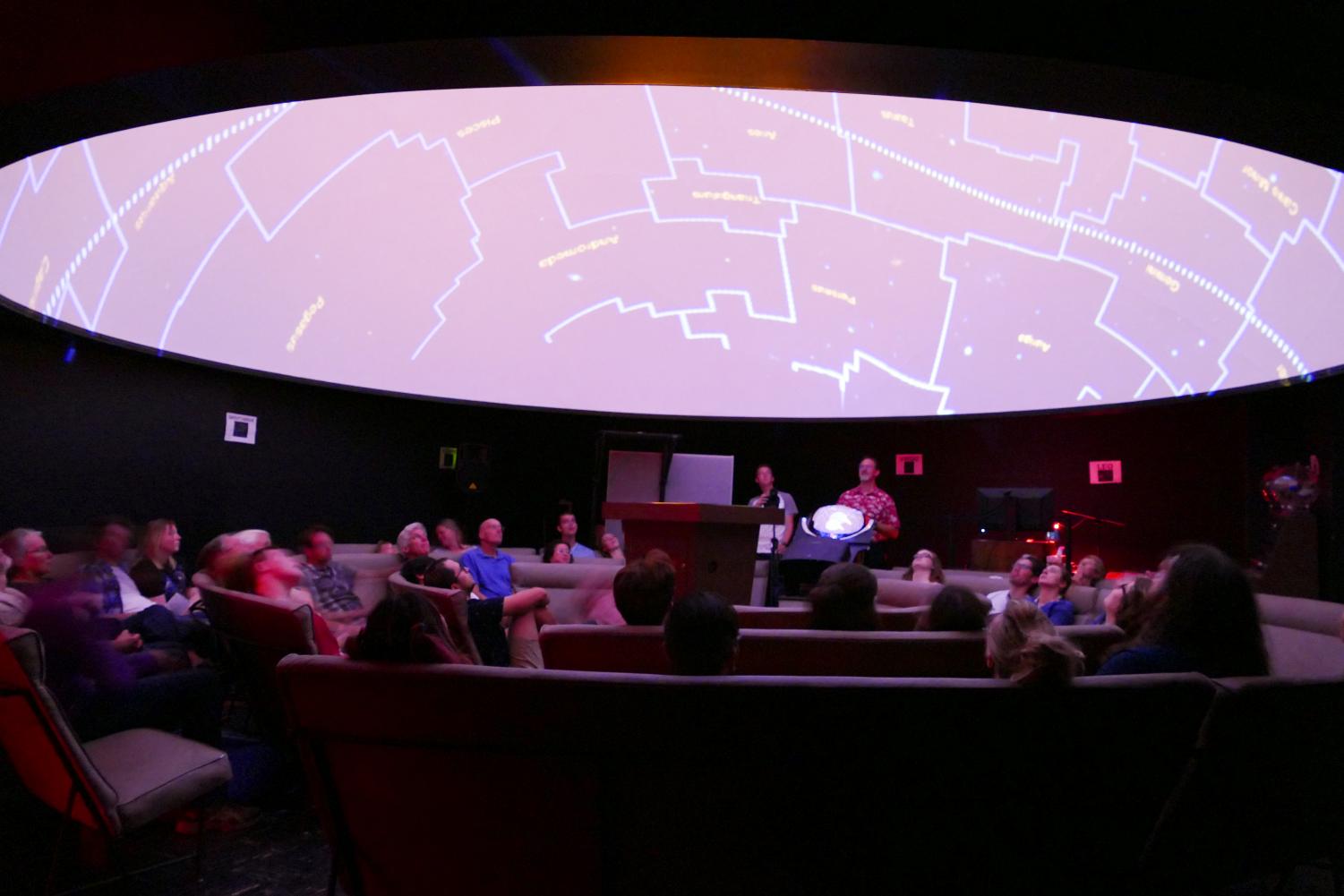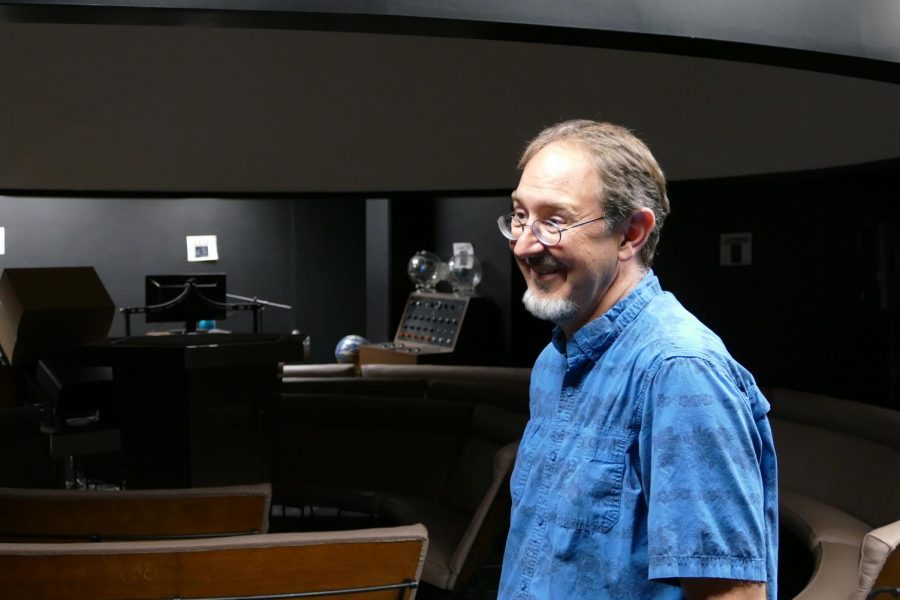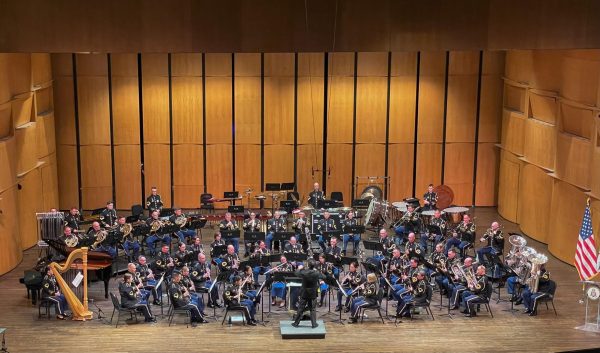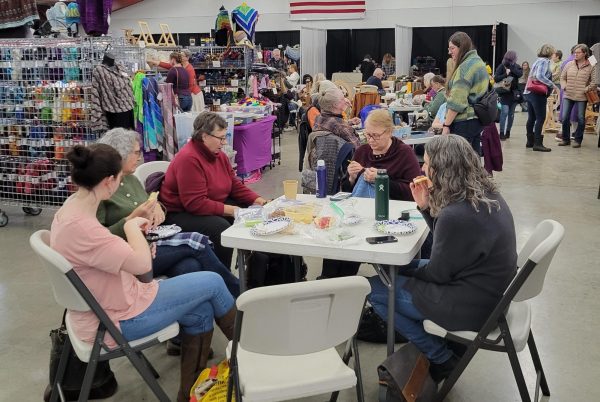Zoom through stars tonight at planetarium
Professor of astronomy will guide audience through space, time to see night sky across globe, seasons
STEPHEN MURNANE | DAILY EVERGREEN FILE
Professor Guy Worthey discusses his show on Aug. 23 in the WSU Planetarium in Sloan Hall. Tonight’s show will be a year in review.
January 25, 2019
Guy Worthey, associate professor in the department of physics and astronomy, will host this semester’s first planetarium event tonight in Sloan Hall’s planetarium on the second floor.
Displaying skies from the beaches of Bora Bora to Chile for the upcoming eclipse, Worthey said he is a mini god in the Sky Dome.
“I get control over time and space,” Worthey said.
Since 1962, the Sky Dome has been an asset to students in astronomy, but just recently opened to the public.
In 2016, the projector received an upgrade to 4K resolution. Worthey designed it.
“We have a pretty high resolution right now, but we can always use more pixels,” Worthey said. “We’d like an 8k resolution, but such a thing doesn’t exist — yet.”

Attendees gaze up at the images of constellations projected by prof. Guy Worthey at his “Galaxies Like Dust” show on Aug. 24 in the WSU Planetarium.
Friday, Jan. 25 at 7 p.m. and Sunday, Jan. 27 at 5 p.m. Worthey will host Skies of 2019, an interactive experience. Worthey will staff the wheel to zoom the audience to anywhere in the world to see a variety of night skies.
“It’s really helpful when trying to understand how the different seasons look in the stars,” Worthey said.
For $5 cash or check, Worthey will take an audience through all the significant events of the night sky in 2019. He said he is also willing to show people anything they are especially interested in.
“I’ll march through how the stars go today or overnight, then go season by season and check out where the planets are,” Worthey said. “We’ll end up in November when there’s a Mercury transit.”
Worthey said the department does these public events to educate audience members, so he’s happy to answer questions or show the night sky in different ways.
“I want people to be more in touch with their world,” Worthey said. “One big step towards knowing where they are in the universe.”






















